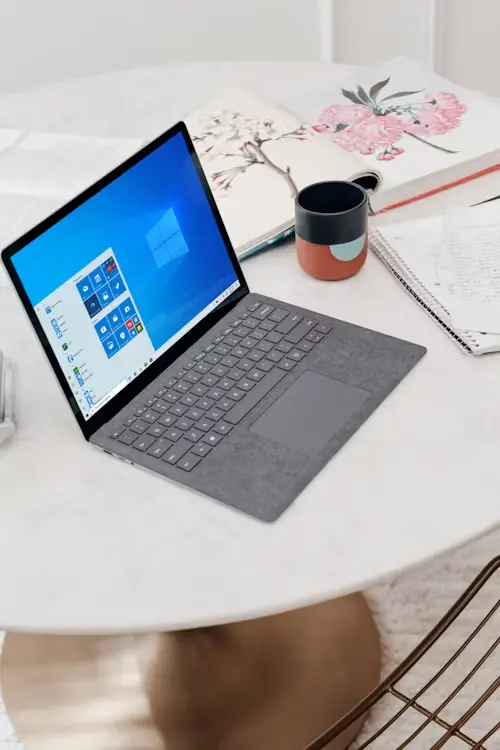Comprehensive Overview of Microsoft’s 10 Products and Services

Microsoft Corporation, a global leader in technology, offers a diverse portfolio of products and services that cater to individuals, businesses, developers, and organizations worldwide. This article provides an overview of Microsoft’s key products and services across various categories, highlighting their functionalities and contributions to the digital ecosystem.

Page Contents
- 1 Comprehensive Overview of Microsoft’s 10 Products and Services
- 1.0.1 1. Operating Systems:
- 1.0.2 2. Productivity and Office Software:
- 1.0.3 3. Cloud Computing:
- 1.0.4 4. Developer Tools:
- 1.0.5 5. Business Applications:
- 1.0.6 6. Devices and Hardware:
- 1.0.7 7. Collaboration and Communication:
- 1.0.8 8. Social Networking and Professional Services:
- 1.0.9 9. Artificial Intelligence and Mixed Reality:
- 1.0.10 10. Security and Compliance:
- 2 Here are some 4 key aspects of their contributions:
- 3 Conclusion
Comprehensive Overview of Microsoft’s 10 Products and Services
1. Operating Systems:
- Windows: Microsoft Windows is the cornerstone of personal computing, providing a user-friendly interface and robust functionality across devices.
- Windows 10/11: Latest versions offering security enhancements, productivity tools, and gaming capabilities.
2. Productivity and Office Software:
- Microsoft Office Suite:
- Word: Word processing software for creating documents.
- Excel: Spreadsheet application for data analysis and calculations.
- PowerPoint: Presentation software for creating dynamic slideshows.
- Outlook: Email client and personal information manager.
- OneNote: Note-taking app for digital organization.
- Microsoft 365 (formerly Office 365): Subscription-based service providing access to Office apps and cloud-based services like OneDrive and Teams.
3. Cloud Computing:
- Microsoft Azure: Comprehensive cloud platform offering IaaS (Infrastructure as a Service), PaaS (Platform as a Service), and SaaS (Software as a Service) solutions.
- Azure Virtual Machines: Scalable computing resources.
- Azure SQL Database: Managed relational database service.
- Azure AI and Machine Learning: Tools for building AI models and integrating AI into applications.
4. Developer Tools:
- Visual Studio: Integrated development environment (IDE) for building apps for web, mobile, desktop, and cloud platforms.
- GitHub: Development platform for version control, collaboration, and software development lifecycle management.
5. Business Applications:
- Dynamics 365: Cloud-based suite of ERP (Enterprise Resource Planning) and CRM (Customer Relationship Management) applications.
- Includes modules for sales, marketing, finance, operations, customer service, and more.
6. Devices and Hardware:
- Surface Devices: Range of tablets, laptops, and 2-in-1 devices designed to showcase Windows features and Microsoft software integration.
- Includes Surface Pro, Surface Laptop, Surface Book, and Surface Studio.
- Xbox: Gaming consoles (Xbox Series X, Xbox Series S) and services (Xbox Game Pass) for gaming and entertainment.
7. Collaboration and Communication:
- Microsoft Teams: Unified communication and collaboration platform combining chat, video conferencing, file storage, and application integration.
- Skype: Communication tool for voice and video calls, messaging, and collaboration.
8. Social Networking and Professional Services:
- LinkedIn: Professional networking platform connecting professionals, businesses, and job seekers worldwide.
- LinkedIn Learning: Online learning platform offering courses and certifications across various topics.
9. Artificial Intelligence and Mixed Reality:
- Microsoft AI: Suite of AI services and tools for developers to build intelligent applications.
- HoloLens: Mixed reality headset offering holographic experiences and applications for industries like healthcare, education, and manufacturing.
10. Security and Compliance:
- Microsoft Defender: Endpoint security platform providing protection against threats for devices, data, and identities.
- Azure Sentinel: Cloud-native SIEM (Security Information and Event Management) service for threat detection and response.


The contributions of Bill Gates and Paul Allen to technology, business, and society have been monumental and continue to resonate globally.
Here are some 4 key aspects of their contributions:
Technological Innovation:
- Microsoft and Personal Computing: Through the founding of Microsoft, Gates and Allen played pivotal roles in popularizing personal computing. Their development of MS-DOS and later Windows operating systems brought user-friendly computing to the masses, revolutionizing how people interacted with computers.
- Software Development: Microsoft’s software products, including the Office suite (Word, Excel, PowerPoint), have become industry standards, empowering businesses, educators, and individuals worldwide to enhance productivity and creativity.
Business Leadership:
- Entrepreneurship: Gates and Allen’s entrepreneurial spirit and vision propelled Microsoft to become one of the world’s most valuable and influential technology companies. Their ability to foresee trends and adapt to technological advancements laid the groundwork for Microsoft’s enduring success.
- Strategic Partnerships: The strategic partnership with IBM to provide MS-DOS for IBM PCs was a pivotal moment that cemented Microsoft’s position in the burgeoning personal computing market.
Philanthropy and Global Impact:
- Philanthropic Initiatives: Bill Gates, through the Bill & Melinda Gates Foundation, has focused on global health, education, and poverty alleviation. The foundation’s efforts in eradicating diseases, improving healthcare access, and promoting education have had a profound impact on millions of lives worldwide.
- Technological Advancement: Microsoft’s innovations in cloud computing (Azure), artificial intelligence, and digital transformation continue to drive technological advancement and empower businesses and organizations to innovate and thrive in a digital-first world.
Legacy and Influence:
- Inspiration for Future Generations: Gates and Allen’s journey from young entrepreneurs tinkering with computers to global tech leaders serves as inspiration for aspiring innovators and entrepreneurs worldwide. Their emphasis on creativity, persistence, and the transformative power of technology continues to shape the tech industry’s landscape.
In conclusion, Bill Gates and Paul Allen’s contributions to technological innovation, business leadership, and global philanthropy have left an indelible mark on the world. Their legacy continues to inspire innovation, drive societal progress, and empower individuals and organizations to achieve their full potential in the digital age.
Conclusion
Microsoft’s comprehensive range of products and services underscores its commitment to empowering individuals and organizations through innovation, productivity tools, cloud computing, and digital transformation. As Microsoft continues to evolve and innovate under Satya Nadella’s leadership, its products and services will continue to shape the future of technology and drive global progress across industries.






